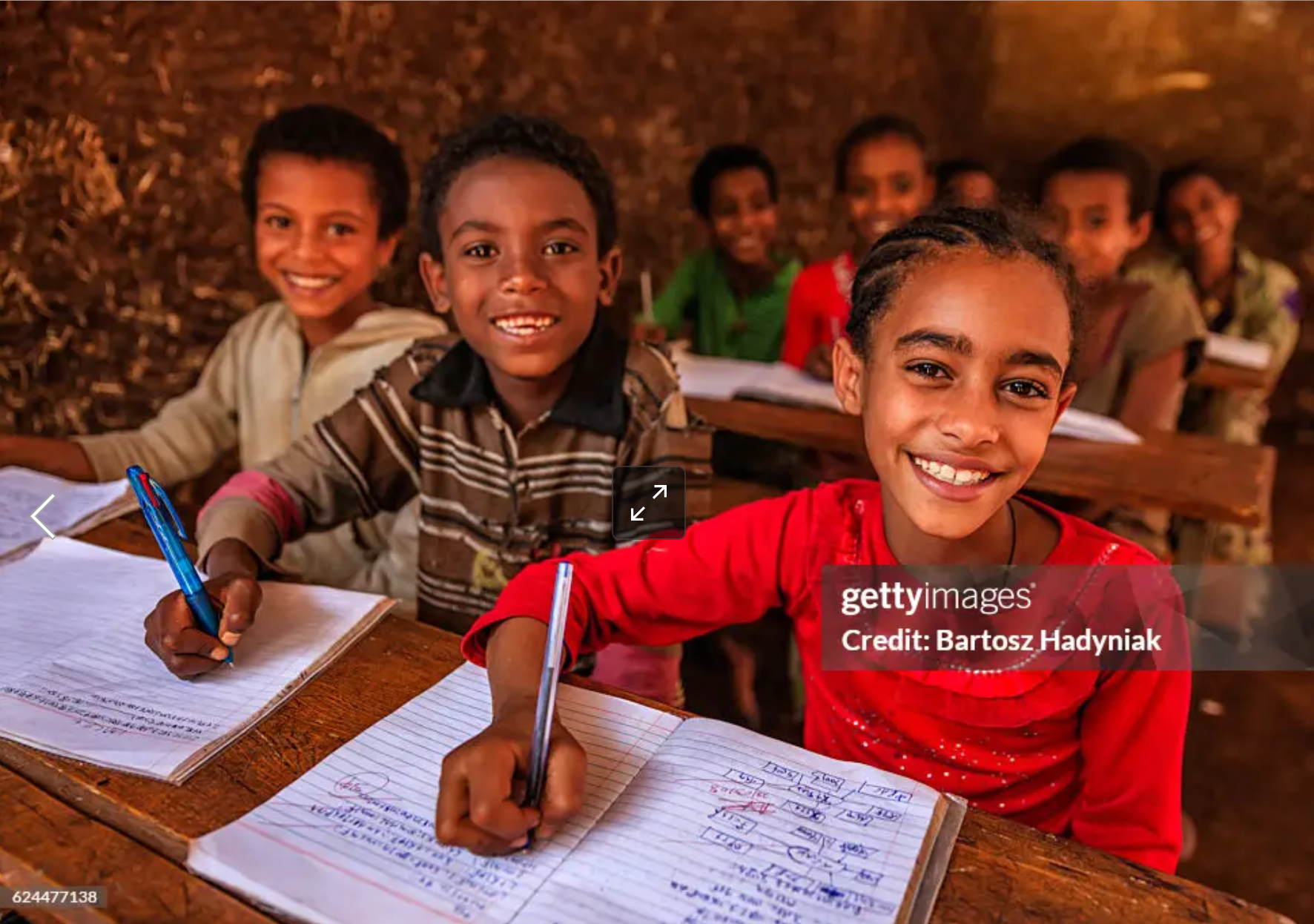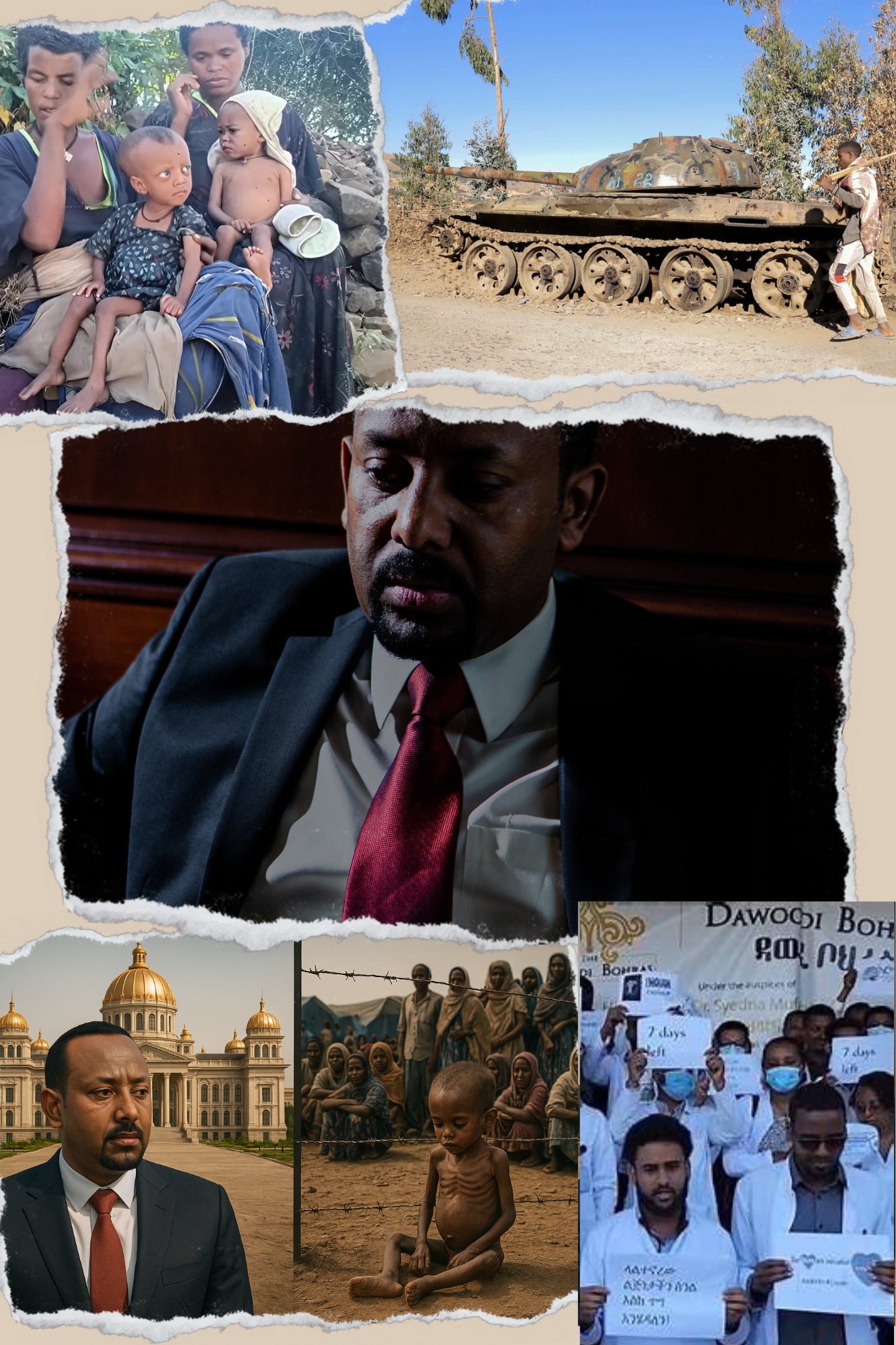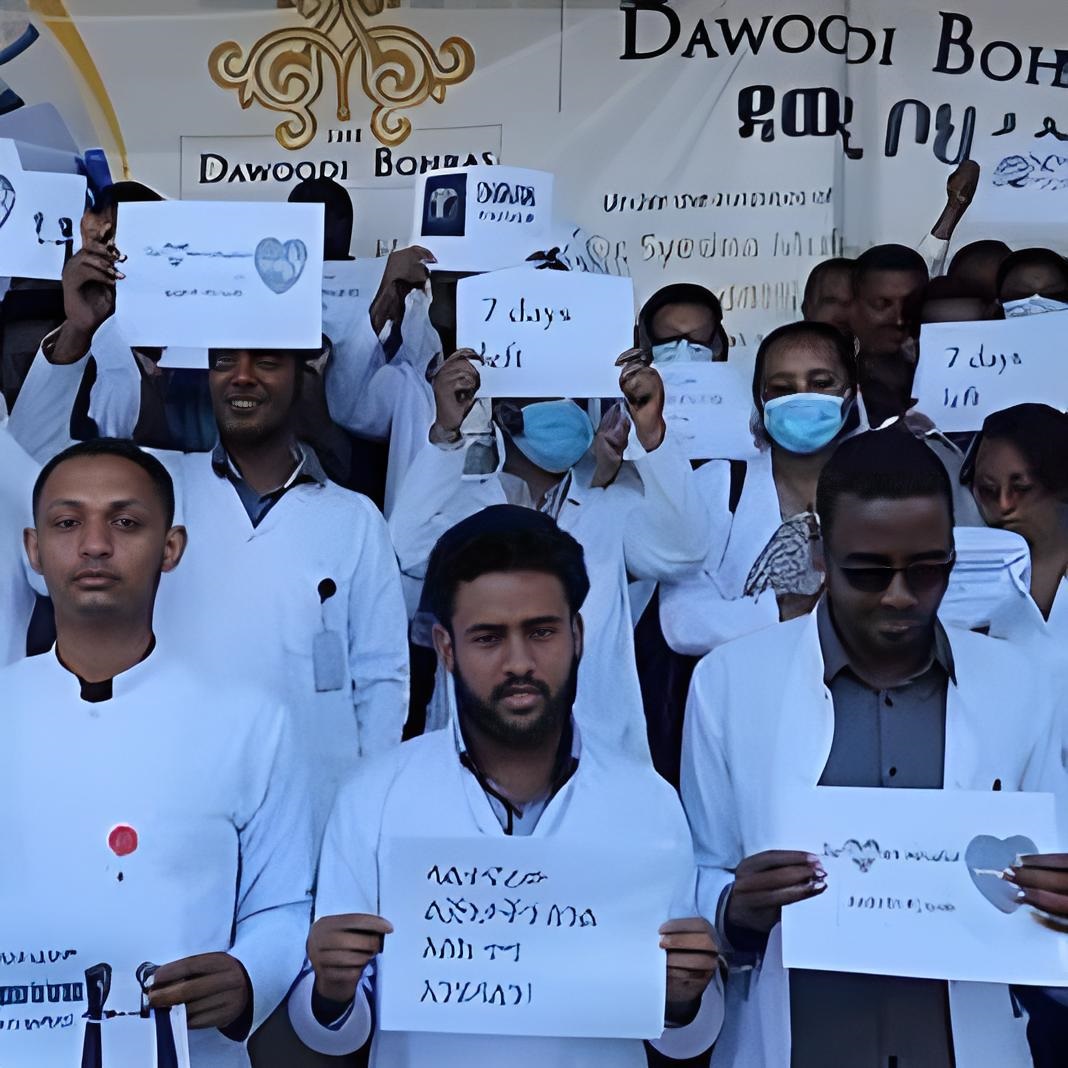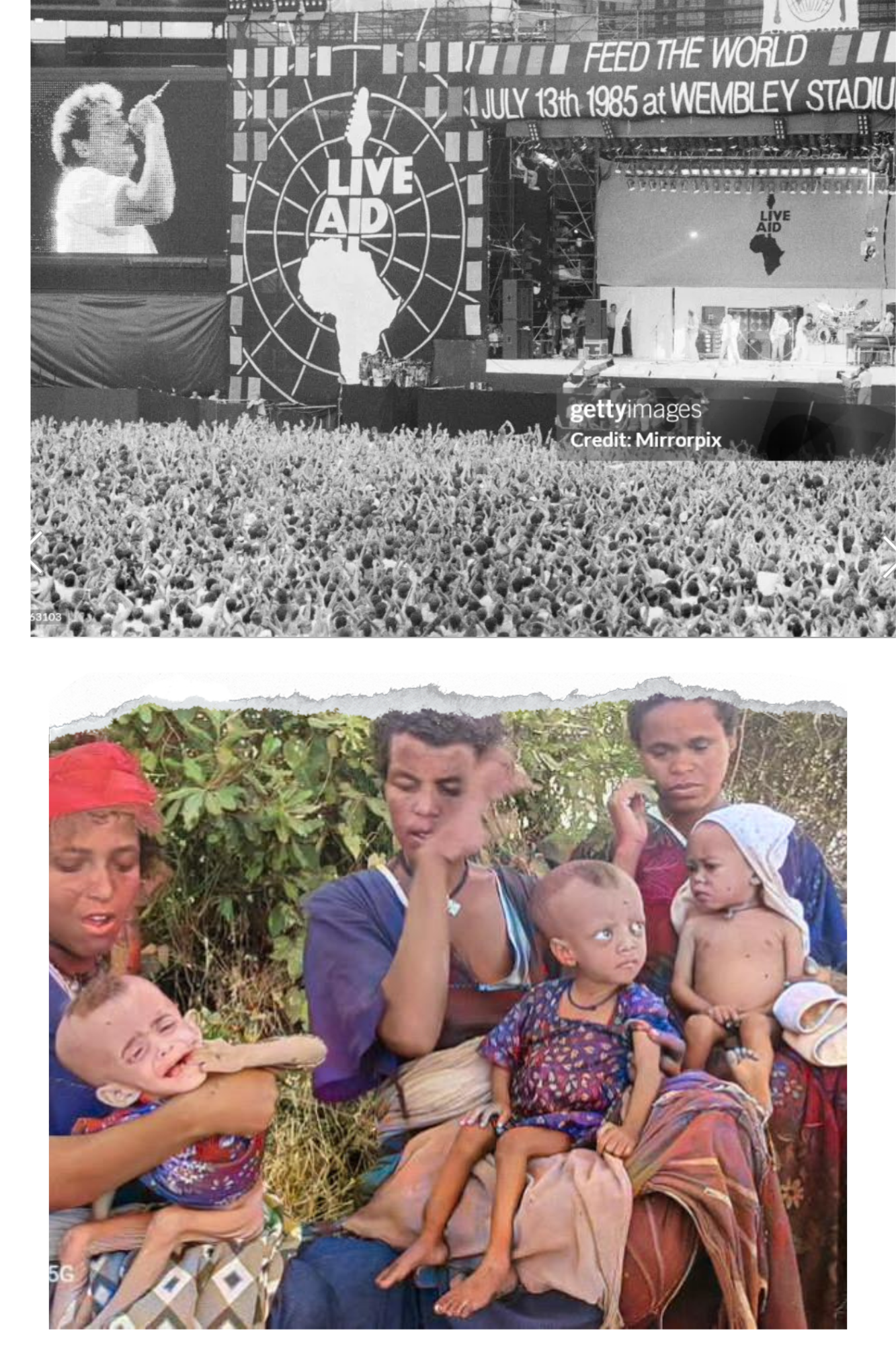Ethiopia Deserves Post-Ethnicity Governance: Cosmetic and Textbook Reforms Will Not Solve Its Crisis

|
Getting your Trinity Audio player ready...
|
You do not have to travel to Dubai, Singapore, or South Korea to learn about growing the Ethiopian economy and making Ethiopians enjoy the fruits of real development. Ethiopia is ranked 175th out of 191 countries according to the UN Human Development Index, one of the most authentic measurements of development. The ethnicity and language-based constitution and administrative system, promoted and institutionalized by the Tigray People’s Liberation Front (TPLF) and the Oromo Liberation Front (OLF), is tearing Ethiopia apart.
Abiy Ahmed’s deliberate pursuit of the Orommoma hegemonic agenda over the past six years has worsened matters, far beyond what Ethiopians and the rest of the world realize or recognize. How come Ethiopia is unable to break out of this vicious cycle? Fifteen of the most advanced African countries in 2024 offer best practices and replicable models. Among these best practices is the prohibition of organizing political parties based on ethnic identity or religion.
I will first discuss the development context in Africa. From 2000 to 2010, the African continent as a group grew by 5.1 percent annually in real GDP. This rate declined to 3.3 percent per year from 2010 to 2020, a huge drop that especially impacts citizens in terms of per capita income. I ask myself, “Is Africa a basket case? Is it a hopeless case?” My answer is unequivocal: It is one of the most promising and youth-led continents on the planet, with enormous resources like minerals, land, rivers, seacoasts, and a young population.
For Africa to transform itself for the better, member countries and governments must initiate institutional and structural reforms quickly. Countries that conduct serious political, institutional, and structural reforms grow and develop faster than those that address these issues superficially or leave them to simmer. Development experts, including multilateral institutions like the IMF and the World Bank, identify the following six institutional pillars that must be modernized by African states and governments:
Strengthen, Empower, and Grant Central Banks and All State-Owned Enterprises Management and Operational Autonomy
Following independence, African central banks suffered under a political environment of state and government control. Governors and their staff were not encouraged to focus on the administration, management, maintenance, and implementation of relevant or appropriate monetary policies such as currency value, foreign exchange management, allocation, and oversight. Countries that have succeeded in granting management and operational autonomy to their central banks are transforming their economies and reaping the benefits of good and national monetary policies faster than those controlled by government elites.
State-owned enterprises (SOEs) that enjoy management and operational autonomy are more efficient and more profitable than those dominated by state and government bureaucrats. State ownership of enterprises is not the problem; it is how they are managed and for whose benefit. One of the most successful state enterprises that competes at the international level is Ethiopian Airlines (EAL), which is run by competent technical and professional personnel, enjoys autonomy, and is profitable.
Initiate a Market-Oriented and Competitive Development Model Suited to African Needs
I am all for a fair, transparent system and market competition. I witnessed the benefits of professionally managed domestic market competition during a recent month-long visit to Vietnam and Cambodia. These countries are thriving after decades of wars and conflicts triggered and, at a minimum, supported by superpowers. African government leaders have an obligation to present to their citizens a long-term vision covering the transformation of their societies for the better.
For such a vision to be owned by citizens, it must first place and address the basic needs of the people. Isn’t this the reason Africans fought and freed themselves from European colonialism? A vision is a roadmap concerning the future state. This vision must be supported by a clearly articulated, integrated, comprehensive, and complementary strategy defining the key pillars that will nurture sustainable and equitable growth and development.
African economies must initiate investment programs that modernize the agricultural sector, on which the majority depend. They must stimulate their domestic markets and avail themselves of goods domestically and globally at competitive prices through food processing, manufacturing, and industrialization. For example, it makes sense to convert oilseeds into edible oils. The value-added of processed foods and manufactured goods is significantly higher than raw materials and commodity exports.
Domestic investors must be encouraged and supported so that they can compete on a level playing field. Availing loans with reasonable conditions and low loan rates make sense. Donors do not transform the structure of any economy; local entrepreneurs do. Developed nations and the donor community can assist African countries by opening their markets to manufactured goods from African countries. This is where the World Bank, the IMF, and the World Trade Organization can help. Benefits from such a model include higher employment for Africa’s youth population and women. Sustainable growth, strengthening the private sector, and stimulating trade and exports will reduce dependency on foreign aid. Programs like Structural Adjustment will no longer be appropriate.
For this to happen, Ethiopia must first have peace, stability, and good governance. It must conceive, design, and implement a long-term, people-centered, comprehensive, integrated, and complementary development strategy. It must recognize that its people, especially its huge youth population, are the most critical assets.
Defend Freedom and National Sovereignty
Freedom is not cost-free. It is not granted; it is earned. Freedom is not apolitical either. I am among African scholars who believe in and push hard for Kwame Nkrumah’s wise guide: “Seek ye first the political kingdom.” Nominal independence is not the same as real independence. Neocolonialism is real. Ethiopia today is a classic example of a neocolonial state. Its sovereignty is severely degraded. Foreign powers, including experts, have more say than the Ethiopian people.
Who controls Africa’s strategic and precious mineral resources and for whose benefit? Who controls Africa’s petroleum? Why is the conflict in the Democratic Republic of the Congo (DRC) still raging? Who dictates global multinational institutions like the World Bank and the IMF? How come Africa does not have a seat on the UN Security Council or a meaningful policy role in the Bretton Woods Institutions?
Why are the UN Security Council, the AU, the EU, and the US reluctant to demand accountability for war crimes, crimes against humanity, rape, and genocide when African totalitarian regimes like Ethiopia’s misbehave? Why is the US, the most powerful nation on the planet, a fierce defender of human rights in Ukraine but not in Ethiopia? How come it is reluctant to accept “Amhara genocide?” Why did US Ambassador Ervin Massinga travel to Tigray while showing reluctance to visit the Amhara and Oromia regions where Ethiopians are dying each day?
Abiy Ahmed’s Oromo-elite dominated party is doing exactly what the TPLF and OLF determined and dictated it must do: dismantle all national institutions and icons and replace them with Abiy Ahmed’s Orommoma project. We can shout, but the world community, especially the West, does not really care. Museveni, President of Uganda, had forewarned Meles Zenawi, Isaias Afewerki, and most recently Abiy Ahmed that Ethiopia’s continuity as a unified country is degraded because of the country’s ethnicity-based political system. No one heeded this advice. The solution is for all Ethiopians to come together and overhaul the entire system. Only then can Ethiopians enjoy real freedom. Only then will Ethiopia’s sovereignty be respected.
Regional Cooperation—Start with the Horn of Africa
Economic and trade cooperation among African countries is critical. The Horn of Africa can benefit hugely from such an arrangement. Ethiopia offers a huge market, while Eritrea, Djibouti, or Somalia offer access to the sea. Imagine the enormous social, economic, and political benefits that would accrue from cooperation rather than constant conflict. Market sizes matter. The small size of African domestic markets remains a major hindrance to economic development. Regional cooperation, if possible, on a continental scale, should be pursued as a national policy by governments. One can start on a smaller scale by forming an economic and trade union among Horn of Africa countries. A replicable model is the East African Cooperation.
The Need for a Multiparty System in Africa
I defended freedom and sovereign rights in pillar three. A one-party system is a major barrier to growth and development. Such a system and the cherished pursuit of good governance do not go together at all. Whether unitary or federal, the best option for African development is to adopt a multiparty system that empowers all citizens to participate in policy and decision-making at all levels. When I say this, I do not mean tens and tens of parties. We see this in Ethiopia. Manufacturing parties for their own sake has not worked and will not work. Ethiopia has been ruled by single parties for more than half a century—1974 to 2024. Fewer parties with a good vision and strong representation of different ethnic groups, professional associations, youth, and women are what I have in mind.
What African Economic Development Role Model is Worth Citing?
There is an urgent need to identify and replicate an African economic development model. The FAO Knowledge Repository informs us that “at least 60 percent of Ethiopian households participate in agricultural production, which includes crop and livestock production. In rural areas, more than 80 percent of households get more than 30 percent of their income from agriculture, which includes agricultural wage labor and on-farm production. In contrast, 97 percent of urban households have no income from agriculture.” They depend on the farming sector to secure food.
The FAO suggests that “agriculture is a critical part of Ethiopia’s economy, accounting for percent of the country’s GDP, 80 percent of exports, and an estimated 75 percent of the workforce. Ethiopia’s agriculture is primarily rainfed and is highly dependent on weather conditions and is increasingly failing. Ethiopia has experienced regular food shortages due to droughts, natural disasters, pests, lack of rainfall, and a shortage of technological advancement.” The FAO is naturally reluctant to add government policy, constant war, ethnicity-based killings, and other government defects and deficiencies to the list of failures.
The key point is that Ethiopia possesses enormous potential to become a net-agriculture-based exporter. For this to occur, it must focus on peace, stability, input to smallholder farmers, and the modernization of the agricultural sector. This sector must, therefore, be a core part of the country’s development pillars. Ethiopia’s agricultural output remains constant. Its main crops include coffee, pulses, oilseeds, cereals, potatoes, sugarcane, and vegetables. Ethiopia is Africa’s largest coffee producer and the world’s fifth-largest exporter of Arabica coffee. Coffee is Ethiopia’s number one source of export revenue, generating about 30-35 percent of the country’s total export earnings.
I ask myself why the donor community failed to propel Ethiopia toward food self-sufficiency? The simple and honest answer is that the country needs good, morally and ethically committed, inclusive, and caring leadership at all levels.
This brings me to the fifteen most advanced countries in Africa in 2024, as discussed by Insider Monkey. Its methodology is reasonable. Based on the Global Innovation Index (GII) 2023 and R&D Expenditure as a Percentage of GDP, sourced from WIPO and the World Bank respectively, Insider Monkey identified the most advanced countries in Africa.
The Global Innovation Index ranked 132 countries based on various aspects, including their adoption of technology, capacity for innovation, and the country’s innovative landscape. R&D expenditure as a percentage of GDP for each country provides an apt understanding of the countries’ inclination towards research and development. The R&D expenditure has been considered the primary metric, and the GII ranking is the secondary metric. The list has been arranged in the ascending order of the primary metric.
Based on these criteria, the following African countries are identified as comparatively advanced:
- 15. Côte d’Ivoire: Ranked 112th in the Global Innovation Index 2023. Mobile app creation in the country was up by 186.78 percent compared to the previous year.
- 14. Cabo Verde: Ranked 91st in the Global Innovation Index 2023, with efforts towards the United Nations Sustainable Development Goals.
- 13. Uganda: Ranked 121st in the Global Innovation Index 2023, with steady economic growth and a 5.3 percent GDP growth in 2024.
- 12. Togo: Ranked 114th in the Global Innovation Index 2023, with notable progress including democratic reforms.
- 11. Zambia: Ranked 118th in the Global Innovation Index 2023, with steady GDP growth over the last decade.
- 10. Nigeria: Ranked 109th in the Global Innovation Index 2023, with potential in its large population despite challenges.
- 9. Mauritius: Ranked 57th in the Global Innovation Index 2023, with a diversified economy and a stable political system.
- 8. Namibia: Ranked 96th in the Global Innovation Index 2023, with significant GDP growth and capital-intensive industries.
- 7. Ghana: Ranked 99th in the Global Innovation Index 2023, with considerable progress in economy and technological advancement.
- 6. Kenya: Ranked 100th in the Global Innovation Index 2023, with a resilient economy and an emerging market.
- 5. United Republic of Tanzania: Ranked 113th in the Global Innovation Index 2023, with a stable political system attracting foreign investment.
- 4. Botswana: Ranked 85th in the Global Innovation Index 2023, with a stable political system and revenue from diamond exports.
- 3. Senegal: Ranked 93rd in the Global Innovation Index 2023, with a diversified economy and a stable democratic system.
- 2. South Africa: Ranked 59th in the Global Innovation Index 2023, with a highly industrialized and diversified economy.
- 1. Rwanda: Ranked 103rd in the Global Innovation Index 2023, with rapid economic transformation and a thriving startup culture.
Among all these countries, I find Rwanda’s rapid transformation remarkable and cite it as a model. It is incredible to me that a country known for ethnic genocide is today the most advanced country in Africa. This is why you do not have to travel to Dubai, Singapore, or South Korea to witness what capable African government leadership can achieve. The role of African governments and leadership matters most.
Editor’s Note: The views expressed in articles published by East African Review are those of the individual authors and do not necessarily represent the perspectives of the editorial team or East African Review as an organization. The publication of any opinion piece does not imply endorsement by East African Review. We encourage our readers to critically assess the content and form their own opinions. We welcome your feedback and reflections; please share them in the comments below or email us at eastafricanreview@gmail.com




